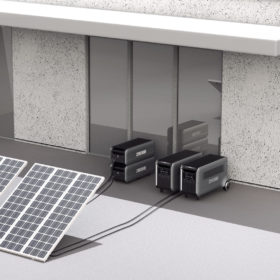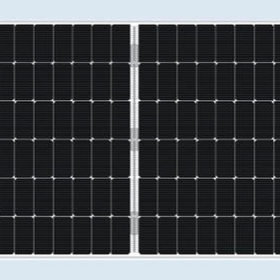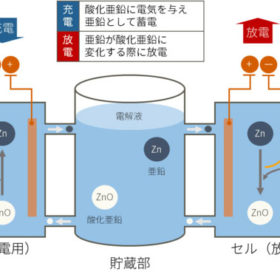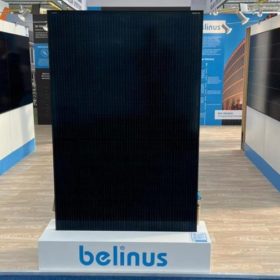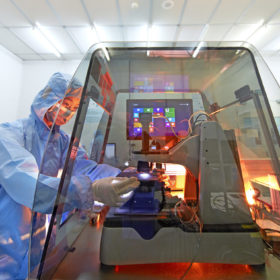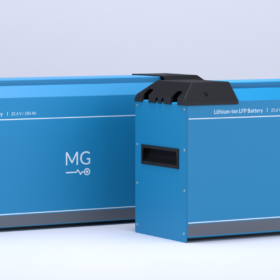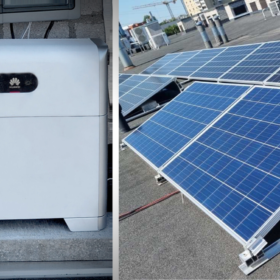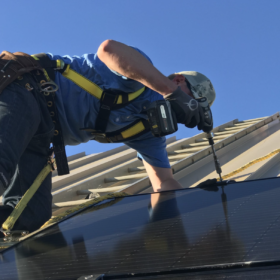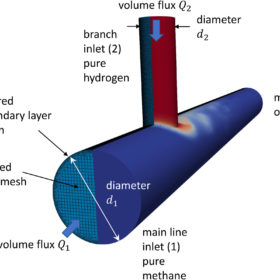US startup unveils plug-and-play solid-state battery for residential applications
Zendure has developed a residential storage system using a semi-solid state battery with 6.438 kWh capacity. Each unit is scalable with up to four batteries, bring the capacity of one unit to 32 kWh and of two units to 64 kWh. The system can be used with solar panels.
Yingli unveils n-type TOPCon solar panel with 22.0% efficiency
Yingli’s 156-cell Panda 3.0 PRO module has a temperature coefficient of -0.30% per degree Celsius and is available in wattages ranging from 590 W to 615 W, with a bifaciality of more than 90%.
Sharp begins developing zinc-air flow batteries for renewables storage
Sharp is developing a zinc-air battery tech for renewables storage. The device will be reportedly safer than their lithium-ion counterparts, with high energy densities.
Belgian manufacturer unveils 400 W black glass-glass heterojunction solar module for residential applications
Belinus has released a new solar panel with a power conversion efficiency of 22.0% and a temperature coefficient of -0.25% per degree Celsius.
Trina Solar achieves 24.24% efficiency for 210 mm n-type TOPCon solar cell
Trina Solar said Germany’s TÜV Nord has confirmed the efficiency rating of its latest solar cell.
The long read: Are local Li-ion battery manufacturing facilities necessary?
As sales of Li-ion batteries accelerate, both governments and the largest battery manufacturers are beginning to grapple with the question of whether local manufacturing facilities are desirable or even necessary. Although this appears to buck the trend of technological development over the last few decades, there are a number of technical as well as geopolitical reasons that make this a major issue for all Li-ion battery manufacturing stakeholders. Everoze partner Jamie Shaw-Stewart explores some of these issues.
New battery for residential, commercial applications
Dutch manufacturer MG Energy Systems is offering a new storage system in two versions, with capacities of 5.8 kWh and 7.2 kWh and nominal capacities of 230 Ah and 280 Ah.
Solar power plants with smart batteries: It’s just a matter of time
At the end of 2021, the total capacity of the solar power plants throughout the world was estimated to be 940 GW. According to the forecasts of solar association SolarPower Europe, the total capacity could reach 2 TW by 2025. With the rapidly growing popularity of solar power plants, experts predict that the next breakthrough in this sector will be smart batteries. In the future, solar power plants will not be able to operate without them.
Metal roofing for solar PV
Metal roofing has become a driver for roof type selection in many cases because not only is a metal/solar roof system less expensive upfront than other roof system combinations, but it also leads to improvements in the lifetime return on investment of the system.
Traditional hydrogen blending could damage gas pipelines, say researchers
UK researchers have revealed that gaseous hydrogen could cause problems in natural gas pipelines, while electrolyzer manufacturer Nel has announced plans to build a second production line in Norway.
